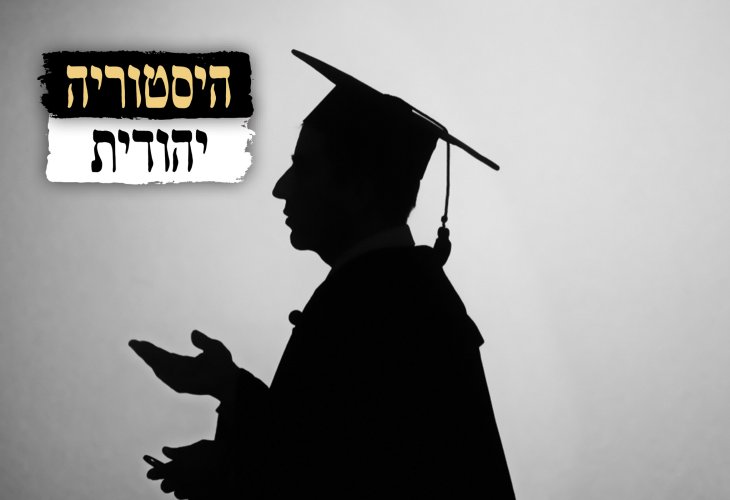Unexpected Honor: The Non-Jewish Professor Who Became 'A Friend' of the Yeshiva
Professor Olaf Gerhard Tichsen regularly attended the lectures of Rabbi Jonathan Eibeschütz in Altona. After years of study, he was awarded a "Friend" certificate by the yeshiva. It was likely given out of fear of the monarchy, yet it remains intriguing.
 (Illustrative photo: shutterstock)
(Illustrative photo: shutterstock)About three hundred years ago, significant shifts took place in the Christian world. The split between Catholics and Protestants had become a recognized and legitimate fact. Scholars in Europe began contemplating and examining Christianity.
They discovered that Christianity was essentially built upon Judaism... that the man in question had merely taken Jewish ideas and taught them to non-Jews, prompting scholars to study Jewish concepts to better understand their own faith.
Large groups of scholars started learning Hebrew at various European academies, delving into Jewish literature throughout the ages. This trend was known as "Hebraism," deriving from the Hebrew language.
In those days, it was not uncommon to walk into a German academy and hear scholars speaking Hebrew fluently and even reading Rashi script.
One such scholar was Professor Olaf Gerhard Tichsen, a professor of languages at the University of Mecklenburg and a "Hebraist." Keen to master Hebrew and understand Judaism, he regularly attended the lectures of Rabbi Jonathan Eibeschütz in Altona. After several years of study, he was awarded a "Friend" certificate by the yeshiva, signed by Rabbi Moshe ben Rabbi Tzvi Lipschitz, the judge. The certificate was probably given out of fear of the monarchy, but it is nonetheless quite fascinating. It states, among other things: "Tichsen traveled from a distant land, moving from strength to strength and from yeshiva to yeshiva, studying and assisting many scholars of his nation, engaging in heavenly work with skill and reason. This is the remarkable young man, Herr Olaf Gerhard Tichsen from Holstein... and although he is, unfortunately, not circumcised, he has already drawn wisdom from the deep wells of the Sages and in Hashem's commandments, and love your neighbor as yourself, my heart has decided to crown him and honor him, supporting him with the rabbinic endorsement that this is the Torah and this will be his heavenly reward, to be called 'the friend Rebbe Tichsen' for every sacred matter...".
He explored Jewish culture, and in his letters to Jewish rabbis, he signed: "The humble Tichsen, Professor of the Academy at Wurtz"!
Another Hebraist was Valentin Wudrich, who corresponded with the great Rabbi Shabtai Cohen, author of the Shach, to learn from him about Judaism. The Shach obtained grammar books for him. A letter in the Shach's handwriting to him was published in "Bikurei Ha'itim" in 1834. The letter is addressed to: "My beloved philosopher Magister Valentin Wudrich," in which the Shach informs him, among other things, that he sent him the book of Rabbi Eliyahu Bachur, and is willing to send more books, asking the Magister to delight him further with "the work of his fingers and the roses of his lips and his sweet and sincere sayings, as they will refresh my spirit and sustain my house."
The Hebraism movement encountered Christian opposition, claiming it lowered the prestige of Christianity and rekindled antisemitism, as Christians searched the Talmud and Jewish writings for things to criticize, effectively ending this era.

